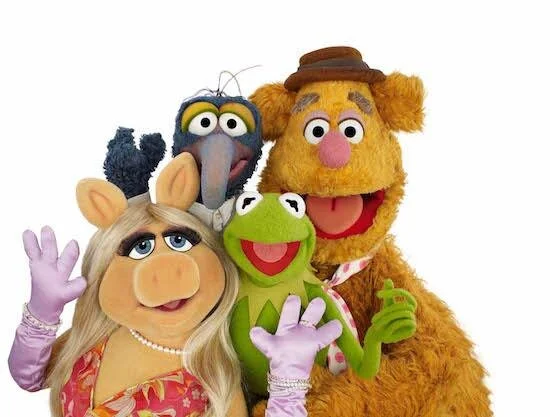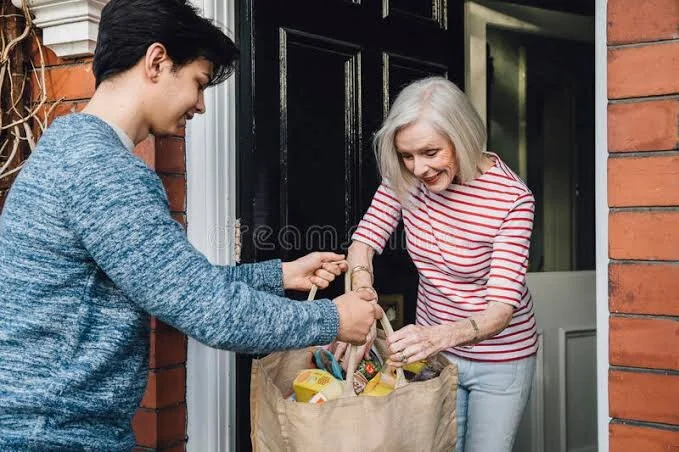The future, the great unknown…
There are always lots of questions about the future. What will the future be like? What will be there in the future? Now these are really good questions. But I think the more appropriate question would be is there going to be a future left for us, Rotary?!
In a message to the 1914 Houston convention, Paul Harris said “The future of Rotary is shrouded in expectant mystery. It will be for you, my Rotarian friends, to aid in the unfurling of the Rotarian destiny. Whatever Rotary may mean to us, to the world it will be known by the results it achieves.”
Paul’s words may well have been addressed to that great convention in Texas 106 years ago, but even more so now, his words are more relevant than ever! But there is still “an expectant mystery” about the future of Rotary - it is still up to us, as Rotarians to be a part of the unfurling of Rotary’s future destiny.
So that question must be asked in 2020, is Rotary relevant? Are we facing an opportunity with that question or do we frame it as a challenge? Let’s consider Rotary’s situation as an opportunity because we have so much to offer.
The Greek philosopher Aristotle once said that the essence of life is “to serve others and do good,” and it seems there is an increasing number of people starting to wake up to that philosophy and see why volunteering is important now. People are starting to understand how serving and helping each other and different communities benefits not just others but themselves too, so the ethos of Rotary and our motto of “Service Above Self” is still relevant and will be relevant into the future.
As an organization we need to capitalize on that feeling of good will and importance because those people who rely on Rotary now will still need to rely on us for help in 30 years’ time and will we be here to keep fulfilling that need?.
These very same people are looking to organisations like Rotary to mend the societal divide and facilitate connections they are so desperate for.
You see people inherently want to be brought together, we all crave human connection, and this is where Rotary has positioned itself for 115 years. We give the offer of friendship, the offer of help, the offer of making a tangible difference. We carry out service, we help communities and Rotary has so many opportunities for someone to make a real difference in so many different ways that it makes Rotary appealing. To me, this is still what makes Rotary relevant, this is what makes it special.
For us to stay relevant we need to keep up with what is going on in the changing world around us, because if the changes in the world outpace our organisation, then the end is nigh my friends. It is true that we must recognize the importance of tradition and the past that came before us and Rotary’s established history that is so full of rich examples of service around the world is definitely a draw for people.
But clubs must be adaptable going into the future in order to stay relevant and in order to attract new members or partnerships. We need to be adaptable and flexible in terms of the projects we choose to become involved with, who we help and how we contribute. We have to make sure that what we are doing is important and relevant in our local community, and actually fills the need that the local community wants instead of the attitude of “this is something we’ve always done so we’re going to keep doing it”.
You see, I find most Rotarians, certainly those from the “Western World”, think of the relevance of Rotary from the perspective of helping the poor, disadvantaged, and all the humanitarian work we do in developing countries. There is no doubt our work in these areas is relevant and needed. The problem is when we ONLY talk about the things like Polio eradication, clean water, basic health care or the humanitarian work to a local audience who doesn't see Polio, and takes clean water or basic health care for granted - because we have all of that in the “Western World”
As such these stories, as important as they are, fail to gain traction with a non-Rotary audience. So if we want to appear relevant into the future we have to change the narrative. Sure we can talk about our humanitarian work overseas, but we also need to talk about things that matter to a local community audience, such as youth development programs, mentoring, business networking, ethical business practices, relationship building, friendship, personal and professional development, etc, the list is endless.
If Rotary is seen as being out of touch with current trends or shifts in the local community dialogue, then this will eventually impact on our relevance not only in the local community but also the world.
If Rotary is no longer considered relevant as seen by the world around it, then it is time to take change seriously. Charles Darwin once observed that “It is not the strongest that survive, nor the most intelligent. Rather, it is those who are most responsive to change.”
The change does not need to be big, change does not need to happen fast, but change is the impetus that will help us grow into the future and to stay on the path of relevance!. Of course we shouldn’t just change for changes sake, we need to stay true to our core beliefs our DNA so to speak, but we can take steps to make sure we can stay relevant in this ever changing world. Take COVID19 as an example. With the COVID-19 pandemic, many Rotary clubs and similar community based groups have had to postpone or cancel their in person meetings, projects, conferences and training etc.
Clubs have looked towards a new online future and embracing what that prospect has to offer. There will of course be people that look at technology as a threat to the status quo, but can I suggest it can be a phenomenal opportunity to leverage and enlarge our influence to re-engage people in our community and to attract people who might otherwise never join our organisation. Clubs may even find the combination of online and in person meetings suits and they use that to help grow.
Rotary clubs need to continue to realise the need for both evolution, and from time to time a peaceful revolution, if it is to survive into the future. I believe this very same mandate is more important today than ever before. Will we be willing to change, diversify, adapt and re-invent ourselves as the world around us changes? Will we be the evolutionary and even revolutionary organisation our communities are crying out for?
If we can keep identifying the big, audacious goals that motivates us and mobilizes our supporters; our organisation is likely to not only survive but thrive in the years to come.
The future of our organization relies on our ability to pass our evolutionary commitment to service and our belief in the value of volunteerism on to those who will take up the mantle when we are no longer here to serve.
Whatever the year, whatever the time, the future is always going to belong to the next generation. It is in the next generation that we pack our hopes and dreams, our plans and ideas for a better tomorrow.
The future of Rotary will depend on these future members, if those Rotarians of the future live up to the ideals and opportunities and face the world with a devotion to service then the future of Rotary will be secure, the future of Rotary will still be relevant because Rotary still is relevant, Rotary still is necessary now and will be for the future.
Be in no doubt that Rotary will still continue to be needed more than ever before, because there is a greater need for Rotarians and Rotary clubs to help with the problems that humanity faces.
You see the key to our longevity has been getting the community involved. And that means not just selling sausages or seeking donations, but building meaningful partnerships with our community and being seen in their eyes as still needed and still relevant.
Going into the future we undoubtedly will face challenges, but as long as we are able to remain needed and relevant to our communities and look for ways for new members from a wide variety of backgrounds and experiences who, like us want to join and make a contribution to the community then our relevance and or need into the future is assured.
Make no mistake, people want to do something that makes a difference and making a difference will always be relevant.
The very future and relevance of Rotary depends on it!
Article by Evan Burrell







